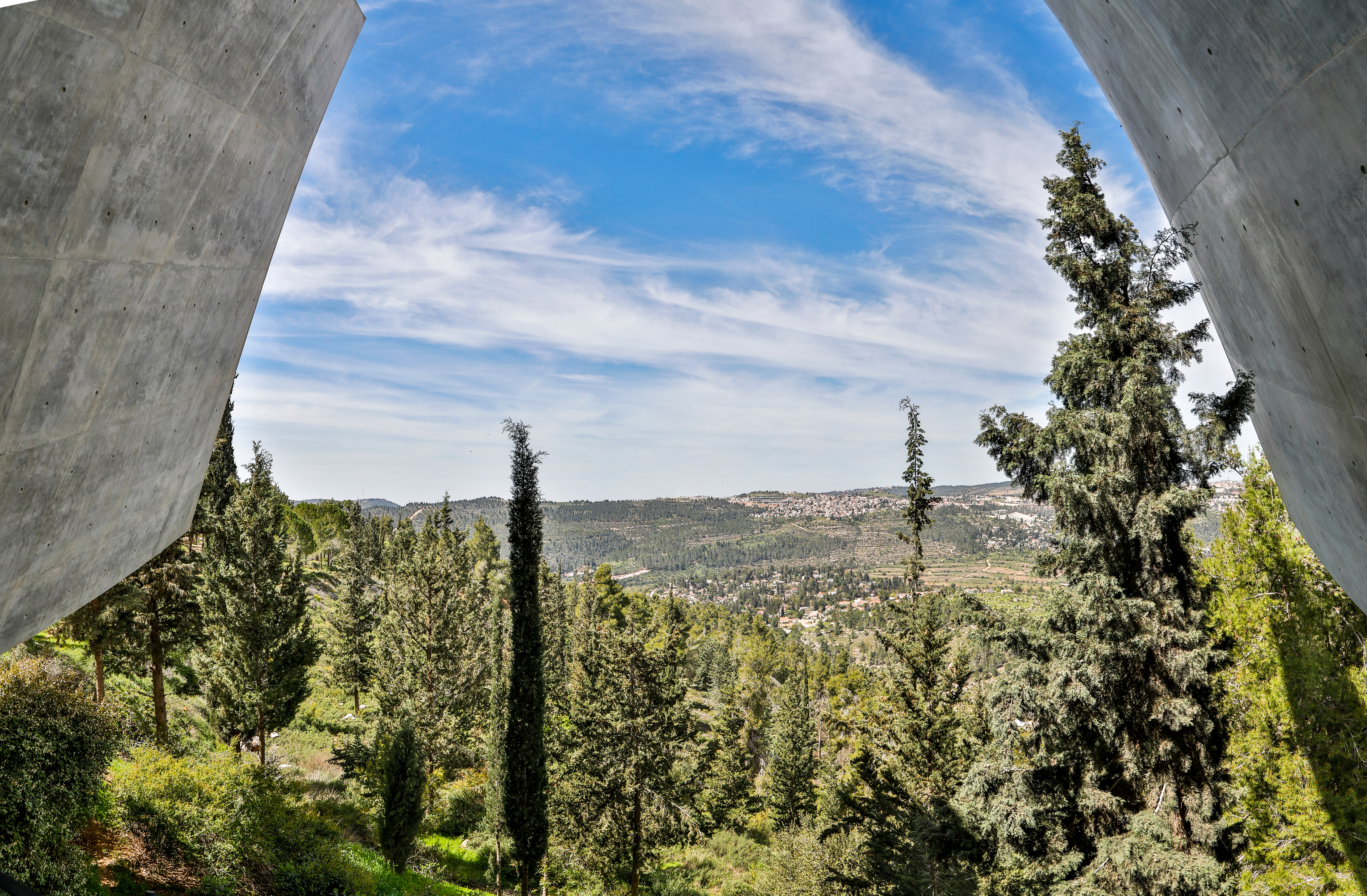What is Hope in the Bible?
Hope (Heb: תִּקְוָה tiqvâ), by definition, is the eager anticipation or waiting for something. It is a joyful, confident expectation of the thing for which one hopes. Hope focuses on the future, that which one does not yet see, yet faithfully waits for with patient perseverance. Hope is the resounding cry of the authors of the Hebrew scriptures.
For there is hope for a tree, if it be cut down, that it will sprout again, and that its shoots will not cease. Though its root grow old in the earth, and its stump die in the soil, yet at the scent of water it will bud and put out branches like a young plant. Job 14:7-9
The prophet Isaiah foresaw the enduring promise of Israel’s hope and heritage as well.
There shall come forth a shoot from the stump of Jesse, and a branch from his roots shall bear fruit. Isaiah 11:1
This enduring hope through time and season has marked Israel’s story from the beginning and has much to teach us today.
Hope in God Despite Circumstances
In essence, hope is a “sacred discontent” with the current state of things. From a faith-based worldview, the truest form of hope is ultimately rooted in God. It is a divine provocation with the status quo, a holy frustration that looks heavenward, trusting that the Creator of all can intervene and bring resolution to the dissonance of hope deferred.
Hope is a bold defiance against the norm, a resolve to openly acknowledge dreams and promises, even when met with resistance, delay, or disappointment.
The Lost Art of Waiting
There is nothing instant about faith. Faith is painstakingly tried and tested. Today, in many ways, we are impatient people, an instant generation. We tap our foot at the microwave, battle road rage in traffic, and are irritated if our smartphone doesn’t download data at lightning speed. Instant gratification is our daily luxury.
But hope and faith involve waiting, sometimes for a very… long… time. This is abundantly evident in Israel’s story.
Abraham: A Story of Hope in the Bible
Abraham is often referred to as the “Father of Faith.” God made bold promises to give him a son, to bless him, and to give him substantial land. He also promised to make him the father of many nations that would be blessed through him and that even kings would proceed from his lineage. God changed his name from Abram (Heb: exalted father) to Abraham (Heb: father of a multitude), reflecting the magnitude of this promise (Gen 17:5).
But there was a problem. Abram and his wife had no child. No heritage that could produce future kings, nations, or multitudes. Sarai was barren. His hope was connected to his “seed” (Heb: זֶרַע zeraʿ, offspring or descendants, Gen 15:5).
Abraham’s hope was deeply connected to his desire for a son, an heir. God’s promises must have been encouraging, yet Abraham’s present reality stood as the testing ground for God’s faithfulness. Abram reminded the Lord, “I continue childless” for “you have given me no offspring” (Gen 15:2-3).
The timing of these promises seemed ludicrous and unreasonable, far too late to hold on to hope. Doubtless, Sarah and Abraham had both walked a long journey of disappointment when it came to “seed.”
Seed and Hope in the Bible
Consider the power of a seed. Wrapped up within its tiny intricate genetic code is the potential for abundant fruit and perpetual multiplication. In just one seed.
The seed of hope is central to the design of humanity. We were innately created to hope, to desire, and to be fulfilled. We can deny the reality of our hopes, pacify them with temporary substitutes, kill prolonged hope and embrace numbness, or choose to contend for true satisfaction. There don’t seem to be many other options.
Hope Deferred Makes the Heart Sick
Hope deferred makes the heart sick, but desire fulfilled is a tree of life. Proverbs 13:12
In some way, every human being has wrestled with the reality of deferred hope, delayed desire, and the pain of disappointment. Hope is evidence in the courtroom of life, witness to the real possibility of satisfaction. It is dissonance that demands action.
And it is safe to say that most people have difficulties enduring prolonged unfulfilled desire.
Abraham and Sarah were no exception. Could they steward the extended test of hope deferred? God gave them extravagant promises. Yet they required deep contending and much waiting (see Genesis 12-21). Even so, Abraham believed God, and it was accounted to him as righteousness (Gen 15:6).
God’s promise to give Abraham and Sarah a “seed” in their old age was dormant for 25 years (Gen 12:4, 21:5). Even once Isaac was born, it would be 40 years until he married Rebekah, and another 20 years of barrenness before she conceived Jacob and Esau (Gen 25:20, 26). By then Abraham was 160 years old. He saw the next generation of his promised seed after 85 years of waiting.
When have we ever waited 85, 40, or even 20 years for a promise to be fulfilled?
The promise that kings would proceed from Abraham’s lineage came to pass over 400 years later. While the promise of land lingered in prophetic tension for generations. And the promise that all nations would be blessed through Abraham’s seed is still in the process of being fulfilled.

The Ultimate Hope in the Bible
God promised and Abraham believed, no matter the space between declaration and fulfillment. Time negated neither God’s faithfulness nor His trustworthiness. Abraham’s faith was in the God who promised the ultimate hope – the “seed of the woman” that would crush the head of the enemy (Gen 3:15), the promised one who would come through the lineage of Israel.
God was very vocal about His promises toward Israel.
I have not spoken in secret, In a dark place of the earth, I did not say to the seed of Jacob, ‘Seek Me in vain’, I, the Lord, speak righteousness, I declare things that are right. Isaiah 45:19
Promises are essentially hope lived out loud.
Hope in Bible Promises
In many ways, it’s easier to have silent dreams or hopes, for they pose little risk if they never come to pass. Once a promise is voiced aloud, hope arises, for there is a new level of commitment for the promise-giver to see things through until completion.
A promise demands accountability, for its fulfillment is tethered to the character of the promise-giver.
Although dashed hopes and deferred promises are evident throughout Israel’s history, remembrance of God’s promises is deep in her song and story, keeping hope alive.
This is essentially one of the functions of the Hebrew Scriptures. They are a chronicle of hope for a people – hope in a God who has proven time and again to be faithful to His promises.
A Story of the Hope in the Bible: Israel
God subjected his covenant promises for humankind to the storyline of a community. The hope of Israel started with a man, Abraham, and the multi-faceted promise of seed, land, and blessing. God made these bold promises public, for which His unshakable character holds Him accountable.
His nature as a covenant-keeping God assured the fulfillment of these promises, no matter the obstacles, of which there have been many. The promises to Abraham and Sarah were unilateral. He covenanted Himself to their fulfillment. There was nothing Abraham and Sarah could “do” to expedite or make the promises come to pass. However, through faith and patience, Abraham and Sarah participated in God’s purposes (Heb 6:12).
Sarah and Abraham’s Hope
By faith Sarah herself received power to conceive, even when she was past the age, since she considered him faithful who had promised. Hebrews 11:11
In hope he believed against hope, that he should become the father of many nations, as he had been told, “So shall your offspring be.” He did not weaken in faith when he considered his own body, which was as good as dead (since he was about a hundred years old), or when he considered the barrenness of Sarah’s womb. No unbelief made him waver concerning the promise of God, but he grew strong in his faith as he gave glory to God, fully convinced that God was able to do what he had promised. Romans 4:18-21
They made an unrelenting agreement with hope, for their faith was in the God of the promise.
“The Theology of Hope” and Unbelief
In his dynamic work on the Theology of Hope, professor and theologian Jürgen Moltmann proposes that hope is an “inseparable companion” to faith.
He emphasizes the essential focus of our faith and the true basis of our hope: where there is no foundation of faith, hope cannot thrive and unbelief and despair usurp ground.
The solid conclusion to Moltmann’s line of reasoning is to ensure that hope is firmly rooted in faith. For if faith is dependent upon hope for its very existence, then the “sin of unbelief is manifestly grounded in hopelessness.”
Hopelessness is born from unbelief. This relentless enemy has toppled even mighty men and women in the face of delay or resistance. Unbelief can prove to be a dire enemy that leads to hopelessness.
Unmet expectations, delay, and silence can often provoke us to abandon our faith in certain areas. And some depths of grief seem to defy the very goodness of the God who promised good things.
And yet remembrance is an integral aspect of giving voice to suffering and soil for the seed of hope.
Hope Past, Present & Future at Yad Vashem
Yad Vashem, the Holocaust memorial in Jerusalem, is laden with grief and the devastation of loss. Yet through the power of remembrance, it also carries a weighty revelation about hope.
It is a sobering experience—honoring, emotional, infuriating, horrific, beautifully insightful, and absolutely essential to understanding Israel’s multifaceted history.
Toward the end of the memorial is an exhibit with footage and photos of concentration camps when they were at last liberated. These images document barracks, soldiers, mass graves, and inmates at the first moments of liberation.
Many of the survivors, although freed, died only days after liberation. Their stories then remained a heartbreaking mystery. However, in a memorial site nestled in the Jerusalem hills, hope past collides with hope present, and a profound realization emerges.
Hope in the Bible for the Land
More than 6 million Jews perished in the unspeakable horrors of the Holocaust, and with them countless future generations. Yet today, millions of the seed of Abraham, and many others, walk the streets of one the audacious hopes of Jewish people throughout the years. Israel, the Jewish homeland.
Generations of prophets foreshadowed these days. Families throughout the centuries yearned for the restoration of Israel. It seemed impossible—a lingering hope and prayer for millennia. Hope was a buried seed, a tree cut to the stump, a mere memory. Israel had not been a sovereign authority since Judah fell to Babylon around 586 B.C.
Over 600 years later, after Jesus’ resurrection, the disciples asked Yeshua if He would then restore the kingdom to Israel. He replied, “It is not for you to know times or seasons which the Father has put in his own authority” (Acts 1:7).
Nearly 2,000 years slipped by until this “time” (1948 AD) when a sovereign Israel came back on the scene, about 2,534 years after the first Kingdom of Israel dissolved.
Hope Fulfilled in the Bible
The dissonant chord of unresolved hope echoed for two and a half millennia, but eventually, in the appointed time, prophetic hope was indeed fulfilled. The seed of hope sprouted. The promises and prayers of generations culminated in reality, and we live to see God’s covenant promises to Abraham being fulfilled in our day.
God’s promises to Abraham for seed, land, and blessing live on.
Regardless of our personal views concerning Israel’s politics, military, and regional relationships (high-stakes topics for another conversation), we cannot deny the simple reality that Israel is the fruition of generations of hope.
Hope Fulfilled for Jewish Dreamers
Most of the faithful Jewish dreamers who through generations declared “next year in Jerusalem” would never live to see the answer to those prayers. Yet we have.
We live in a day and age where hope fulfilled outlives the dreamers. The root is bearing fruit and the multiplied seed of generations still resounds of God’s faithfulness.
Their hope proved true, for hope is deeply connected to eternity.
Hope must be grounded on faith, and faith is inseparably fused to God for eternity. We must be willing to allow hope to outlive us and become a part of the great cloud of witnesses who live in faith and even die in hope.
Hatikvah: Hope Born from Grief
Remembrance is an integral aspect of Jewish culture, both historically and today. And it is intertwined with honor, grief, healing, and future hope.
Hope is vital to Israel’s miraculous story. Hope—Hatikvah in Hebrew—is her very national anthem, the bold declaration of generations for a nation reborn from the ashes.
“Our hope is not yet lost, it is two thousand years old, to be a free people in our land, the land of Zion and Jerusalem.”
Waiting, Grief and Relationship with God
The God of Israel still waits in hope—for a relationship with you and me, and for His beloved Israel. Many of His promises, like seeds buried deep in the soil of time and history, still carry the hope and power to bear fruit, even when they appear dormant.
Still, there is pain in remembrance. And certainly, this grief touches the heart of God. There is no way that a perfectly just and loving God could observe our world, filled with problems, evil, destruction, and despair, and not feel pain. Our present world marred by sin is vastly different from His original perfect design.
Then why doesn’t He intervene and stop it all? Because of hope.
He wanted you and me to take part in the process of restoring things.
That relationship must be far more valuable than we understand. If that relationship is worth all of this present suffering and pain, then we must admit how little we truly understand God’s love and longsuffering.
Our Hope and Eternity
The deeper we dive into the realm of hope, the more we realize how intricately hope is connected to eternity. Godly hope spans generations and always outlives the dreamer.
Throughout Israel’s story, even through deep wells of grief and suffering, God has masterfully preserved the seed of Abraham. The miracles of deliverance abound throughout Israel’s history and the Hebrew Scriptures.
He brought Israel out of Egypt, established them in their land, rescued them in battle, preserved them in exile, rebirthed a nation from the ashes of the Holocaust, and remained faithful to His promises to bring them home. The Remnant lives on.
God is the Author and Sustainer of hope, even the dormant seeds that seem lifeless in the ground. As we take time to remember, may we, like Abraham, stand resolute to look to the eternally faithful Author of hope. The One who embedded the power of hope deep within the seed.
Articles Related to Hope in the Bible: Faith, Waiting & Remembrance for Israel
Estimated reading time: 13 minutes



